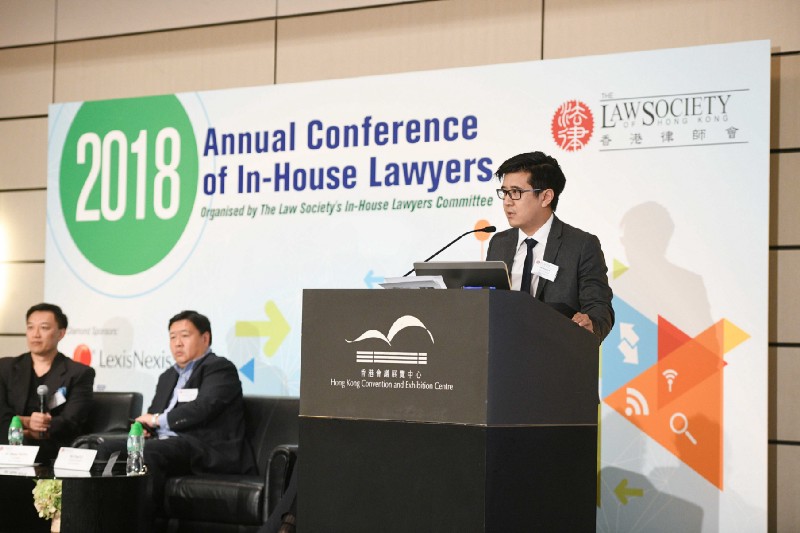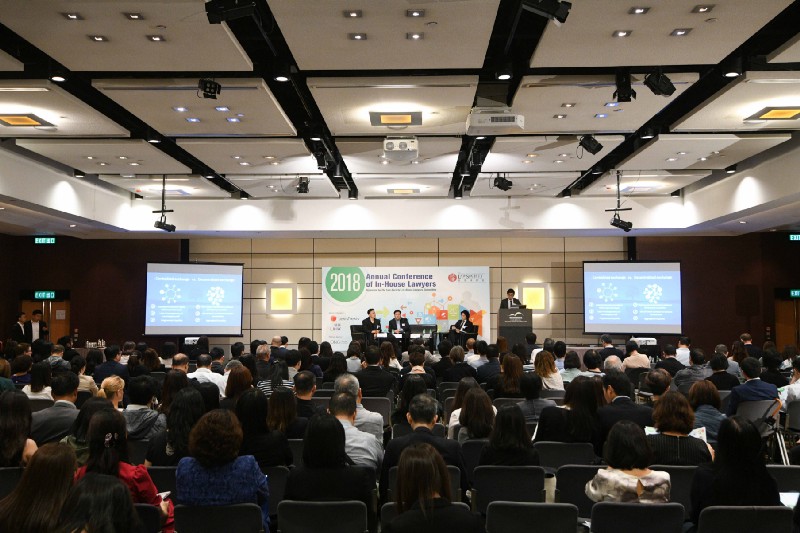Last week I was invited to give a speech and take part in a panel discussion at the Law Society of Hong Kong’s Annual Conference of In-House Lawyers. Much of the event centred around the legal implications of new technologies, with digital assets forming one of the main topics. My session was called “Unblock the Blockchain: Explore the Legal Minefields of Cryptocurrency.”

Paul Li, General Counsel of the OAX Foundation, gave a speech at a Law Society of Hong Kong conference
I was asked to give a presentation to over 400 audience members on the legal issues facing cryptocurrencies. In addition, I took this opportunity to discuss some of our work at OAX Foundation and provided a comparison between centralized exchanges, and decentralized exchanges and platforms. I also shared with the audience how we view the regulatory environment, before joining a panel of leading technology industry participants to discuss the current legal situation.
The panel discussion was moderated by Kevin Woo, a member of the legal committee of the Hong Kong Blockchain Society. My fellow panelists included Pindar Wong, who set up Hong Kong’s first licensed internet service provider, co-founded the besafe.network and is now a member of CoinDesk’s advisory board, and Rocky Lee, the managing partner of the Silicon Valley office at King & Wood Mallesons, the law firm which sits on OAX’s Working Group. Both of my fellow panelists have international profiles as leaders in their field, so it was fascinating to debate the role of blockchain and digital assets with them.
One of the main points I made in both my speech and the panel discussion was that regulators, lawyers and the public at large need to rethink their entire approach to digital assets. Owing to the decentralized nature of both the products and market for trading, digital assets are fundamentally different from traditional asset classes and systems. I argued that because of this difference, we all need to alter fundamentally how we think about not just each particular asset, but the entire environment and infrastructure surrounding these assets.

Traditional markets focus on centralized sources for trust and validation, and the current regulatory focus mirrors that. To merely approach the new digital asset market in the same way will not be effective and will result in unsatisfactory outcomes for both the participants and regulators. It is only with a shift in mindset that digital assets will become an accepted part of the financial mainstream and bring benefits to society as a whole.
More importantly, the conference’s focus showed how seriously the world is taking the developments in blockchain and digital assets, with hundreds of lawyers keen to learn more about how they are becoming part of everyday legal work and experience. It was a welcome opportunity for us to assist with this education and to promote the shift in mindset that is required. We are confident that events like this will continue to establish our reputation as a firm closely involved in bringing digital assets into the mainstream through our focus on transparency and high governance standards.


